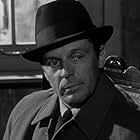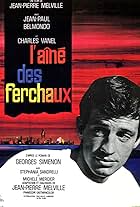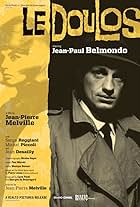For a director whose best films are absolute masterclasses in tone, this one takes a while to find its voice.
A French UN delegate goes missing in New York City, and a French reporter (played by Melville himself) and his photographer friend go on the hunt by tracking down three women, one of whom is suspected to be his mistress.
I love a good mystery, especially one shot on location in late-50's New York, and the "over the course of a single night" conceit can be delightful. But the characters initially read flat, and the stakes feel nonexistent until we get towards the end of the story. Once certain characters' true colors are revealed, it becomes a treatise on the moral responsibility of journalists and storytellers, and, Melville being Melville, French WWII resistance comes into play. It's not terribly nuanced, but it's an effective moral tale, revealing the same sort of deep humanism that underlies Army of Shadows.
Visually, it's a strange, inconsistent blend. Much feels amateurish, like a quickly-shot newsreel, which isn't inconsistent with the sorts of noir and noir-tinged 40's and 50's American urban films Melville is riffing on (The Naked City looms particularly large). But it doesn't feel quite in the wheelhouse a director whose use of meticulous, almost meditative cinematography is a distinct calling card.
That said, there are some incredible shots, including a slow tracking shot in a jazz studio, which is now near the top of my "scenes featuring musical performances where it's clear they're actually playing the music" list.
Overall, it's a less essential entry in the Jean-Pierre Melville catalog. But if you've watched the big ones, and want to see a great director directing himself in a good movie, check it out.



























